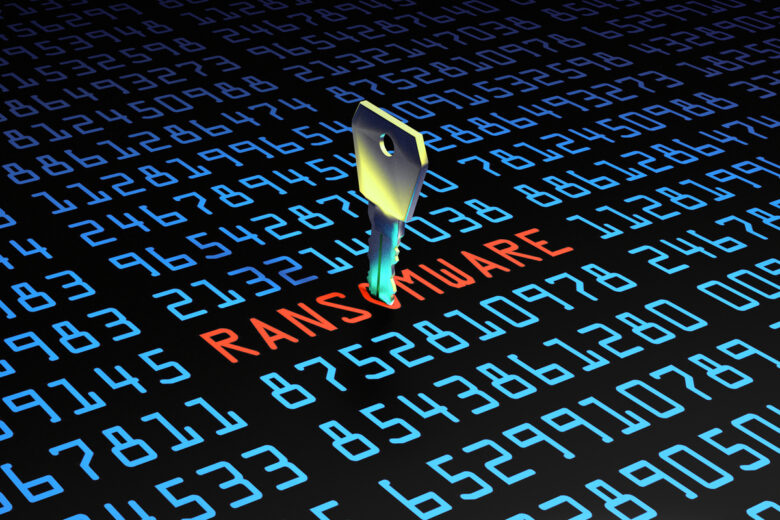Learning about different types of cyberattacks is the number one step in protecting yourself from them. One of the most common types is a ransomware attack. In basic terms, it’s when someone holds your data „hostage“ and requires you to pay a ransom to get it back (hence the name).
The first time it was recorded was in Russia, 15 years ago. It’s slowly declining due to the cybersecurity improvements, but it’s still a very widespread phenomenon.
In this article, we will try to explain everything you need to know about the ransomware attacks to help you protect yourself and your valuable data.
Ransomware explained

Source: csoonline.com
Ransomware is malicious software that a cybercriminal will put into your computer to steal your data. It displays messages that usually directly instruct you to pay a fee so your system can function properly again. It can lock your computer screen and encrypt your files so you can’t access them. It’s usually installed through malicious links, be it in your email inbox or somewhere else online.
The worst thing about these attacks is that you may not be able to access your files even after you pay the requested fee. If someone is willing to steal your private data and blackmail you, chances are that they won’t care about returning what’s yours even after you pay them. Never trust suspicious links online and make sure to invest in quality anti-virus software.
Who are the main targets?

Source: hetisgeengeheim12.live
While anyone can be a victim of a ransomware attack, companies who store private data are the main targets as their information is more valuable. Law firms and medical clinics usually store a great deal of private information about their clients, and they need to have access to this data at all times to run their business. This is why these types of companies are a great target for a ransomware attack. They might even be willing to pay more to protect their reputation. Think about it, if you were a client of a company, and you found out that they have security issues and that your data is not protected as well as it should be, would you still do business with them? Yeah, probably not.
Still, as previously said, anyone can be a victim of a ransomware attack, so gaining knowledge about it is crucial.
Prevention

Source: pexels.com
Is there any way to prevent a ransomware attack from happening? Well, yes and no. There are certainly some precautions you should take to minimize the chances of malware infection, but nothing can guarantee you won’t be targeted.
The important thing to remember is to never click on any links that come from unreliable sources. If someone e-mails you saying they’re from Microsoft or the Government, well, it’s most likely a scam. While these kinds of scams are easy to detect, there are still tons of ways an attacker can infect your computer without you doing much.
This is why it’s super important to invest in high-quality anti-virus software, especially for your business. While it can’t protect you from everything, having good anti-virus protection is extremely important. Having a cheap, low-quality anti-virus is almost the same as not having any protection at all.
The best way to ensure your company’s security system is in its optimal state is to hire a professional like those at Cytelligence. Companies like these can give you great advice on how to improve your cybersecurity and prevent potential attacks and security breaches.
What to do if you’re attacked?

Source: pexels.com
The first question that comes into your mind is probably whether you should pay the ransom or not. You have to remember that you’re dealing with criminals here, so there is no guarantee that you’ll get your data back.
However, you should know that ransomware has become a huge business, and the software used for this kind of crime is developing very quickly. Some software even has a feature that determines your location and sets a fee that fits your possibilities based on your whereabouts. The fee will always be high enough to satisfy the attacker but low enough to make the victim pay it with minimal hesitation.
Research shows that in 65-70% of cases you’ll get your data back, and many companies set funds aside for these kinds of situations. Sometimes it could prove to be more economical to just pay the fee than to clean your system.
Still, as you’ll be dealing with real criminals, if you don’t want to risk it, the best course of action would be to hire a professional who can help you get rid of the malware. Keep in mind that this can be pretty expensive.
Ransomware removal

Source: itnews.com.au
You have to keep in mind that even if you manage to remove the ransomware, you may still lose your data. Decrypting your data is almost impossible without the mathematical key that only your attacker holds. This is why most of the companies decide to pay the fee, and the particularly skilled attackers will know how to choose the most vulnerable victims. This is why hospitals and other medical institutions are the number one target for most ransomware attacks.
Prevention is the best way to go if you want to protect your data. Unfortunately, the only way you can get your data back is to pay the ransom. This is risky and it might not even work. Still, make sure to check if your data is really encrypted, or it’s just a case of scareware. Scareware is malicious software that steals your data and uses intimidation to get you to pay some kind of fee. Still, removing scareware is pretty easy and you won’t be losing any data. This is why it’s very important to know the difference between scareware and ransomware.
Conclusion
Ransomware is a type of software that hackers use to encrypt your data, making it inaccessible to you. They then proceed to ask you for money in exchange for your data. It’s an unfortunate situation, and the only way to protect yourself is through prevention. This includes ensuring that your cybersecurity system is at its best, while also having enough knowledge to protect yourself online.

